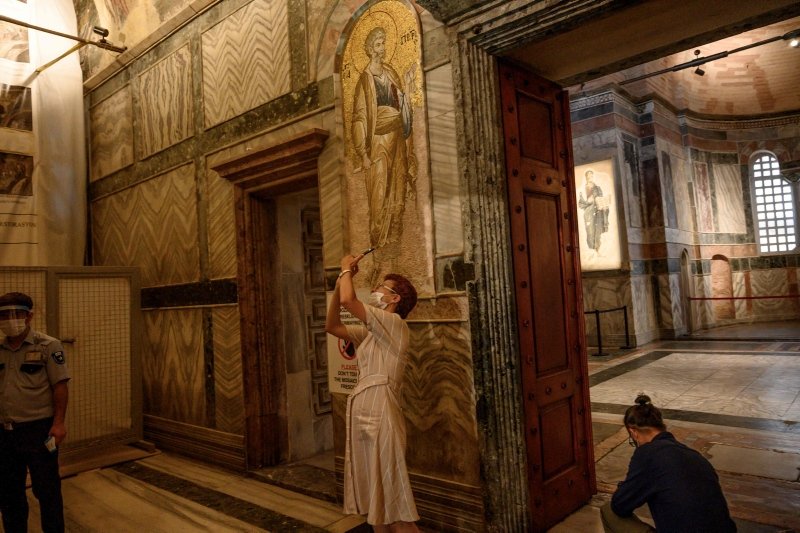Weeks after the historic return of Hagia Sophia to a mosque, another ancient house of worship in Istanbul is set to reopen for Muslim worship.
The sixth-century Chora Museum, located in Istanbul's Fatih district on the historical peninsula, will reopen as a mosque for Muslim prayers, authorities said Friday.
A presidential decree published in the country's Official Gazette today annulled a 1945 Cabinet decision making Chora (Kariye in Turkish) into a museum.

Dating back to the sixth-century Byzantine Empire, the beautiful structure of the Chora Church remains intact. In the 16th century, after the conquest of Istanbul by Mehmet II, the church was converted into a mosque.
The interior of the building is covered with some of the oldest and finest surviving Byzantine mosaics and frescoes. They were uncovered and restored after the building was turned into a museum.
Due to the prohibition of iconic images in Muslim prayer venues, the church's frescoes were covered under a layer of plaster, which took their toll on them, along with major earthquakes (specifically in the 12th century).
After the Cabinet decided to make it a museum, Thomas Whittemore and Paul A. Underwood from the Byzantine Institute of America and the Dumbarton Oaks Center for Byzantine Studies sponsored a restoration project.

On July 24, Friday prayers in the Hagia Sophia Grand Mosque marked the first Muslim acts of worship there in 86 years.
Hagia Sophia served as a church for 916 years until the conquest of Istanbul, and a mosque from 1453 to 1934-nearly 500 years-and most recently as a museum for 86 years.
In 1985, Hagia Sophia was added to the UNESCO World Heritage List.
Besides being a mosque, Hagia Sophia is also among Turkey's top tourism destinations and will remain open for domestic and foreign visitors.
As in the conversion of Hagia Sophia, authorities are expected to preserve the frescoes in Chora with special lighting and covering techniques.